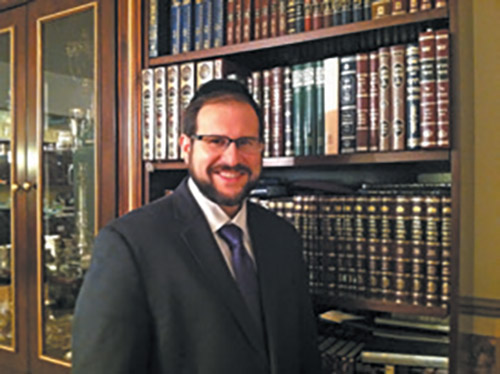
It’s not just proper protocol and good manners, but it’s actually an ancient custom mentioned in the Gemara. When someone invites you to their home, it’s proper to give them a gift. The Gemara (Megilla 26a) states: “Abayei said: We learn from here that it is proper etiquette for a person to leave his flask of wine and the hide (of the animal he slaughtered) at the inn where he is staying.”
On one occasion a few years ago, our son Shalom invited a classmate for Shabbos. Most of the time, friends who come for Shabbos bring a bottle of wine or a candy platter, but this boy didn’t. We didn’t think much of it; in fact, we wouldn’t have even noticed that he didn’t bring anything. But then on Sunday night we discovered many candy wrappers on the floor and an empty platter. It turns out that his mother indeed sent him with a very nice candy platter, which he enjoyed immensely upstairs throughout Shabbos.
When I was the social worker in Yeshiva Bais Hachinuch, the yeshiva was once graced with a visit by Rav Yitzchok Scheiner shlita, the Kaminetzer rosh yeshiva from Yerushalayim. Rav Sheiner addressed the students with characteristic warmth and love. I typed it up afterward and disseminated it to the students so they would remember it.
The following are the opening words of that speech:
“I’m very thrilled to be in this holy makom (place of) Torah. I’ve been living in Yerushalayim for 60 years, and 70 years ago I went to school in Spring Valley. So we are classmates. I’m just a bit older, and I’m happy to meet my classmates. This is where I began learning Torah, in Monsey and Spring Valley, so I want to see how my new classmates are getting along. That’s why I came here.
“I want to give you all a bracha that you should all become big talmidei chachamim and tzadikim and you should all be good.
“Do you know what good means? Good means somebody who makes someone else happy all the time.
“I want to quote for you two lines from one of the most important sefarim ever printed—Nefesh HaChaim. It was published by Rav Chaim Volozhiner. In the introduction to the Nefesh HaChaim, his son, whose name was Yitzchok, and was also very great, writes: ‘I want you to remember these two very important lines, which are one of the most important lines to know:
וכה היה דברו אלי תמיד—This is what he (my father) always taught me; every day he told it to me again so I shouldn’t forget it, because he considered it the most important lesson he can teach me.
האדם לא לעצמו נברא—A person was not born only to take care of himself,
אלא להועיל לאחריני—only to help the people around him, to make them happy and to make them feel good.’”
I have heard this quote on various occasions, but whenever I do I picture Rav Scheiner with his eyes closed and finger wagging as he emotionally conveyed it that morning to the young students of Yeshiva Bais Hachinuch.
We aren’t in this world for our own selfish needs and wants. Of course we have to take care of ourselves, but that cannot be our main objective. Rather we are here for the betterment of others, to help make other people’s lives better in any way we can.
The candy platters we have—our talents and capabilities—were not given to us merely for our own selfish needs and pleasure. They were given to us to help enhance the lives of those around us. Those “candy platters” weren’t granted to us so we can consume them ourselves upstairs where no one else benefits from them.
I have a good friend who loves to walk around with open packages of candy, offering some to everyone he passes, quipping, “Can I make your day a little sweeter?”
Imagine if the world lived by that creed. Imagine if our society wasn’t so selfish and focused on its own immediate gratification and development of its superficial image? What a different world it could be!
By Rabbi Dani Staum
Rabbi Dani Staum, LMSW, is a rebbe and guidance counselor at Heichal HaTorah in Teaneck, NJ, principal at Mesivta Ohr Naftoli of New Windsor, and a division head at Camp Dora Golding. He can be reached at stamtorah@gmail.com. Looking for “Instant Inspiration” on the parsha in under five minutes? Follow him on TorahAnytime.com.










